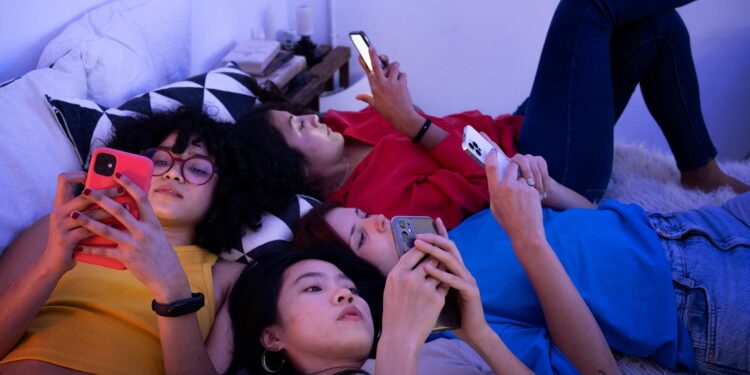Late-night social media scrolling has become a common habit among people in the digital age, especially among younger people. People mindlessly scroll or doomscrolling across social media platforms and waste their time, energy, and sometimes health. This is a broad topic with impacts on mental, physical, psychological, and emotional health. So, is it something to worry about?
Yes, it is like something that invisibly harms you most amusingly. It’s certainly a cause for concern. Consider how frequently you reach for your phone right before bed, promising yourself only “five more minutes,” and then an hour later.
You’re losing sleep because of that habit of Screen Time before Bed, but it’s also interfering with your brain. The blue light from the screen essentially fools your body into believing it is daytime and scrolling through social media keeps your mind engaged when it should be relaxing. It’s understandable why you feel drowsy or unwell the following day.
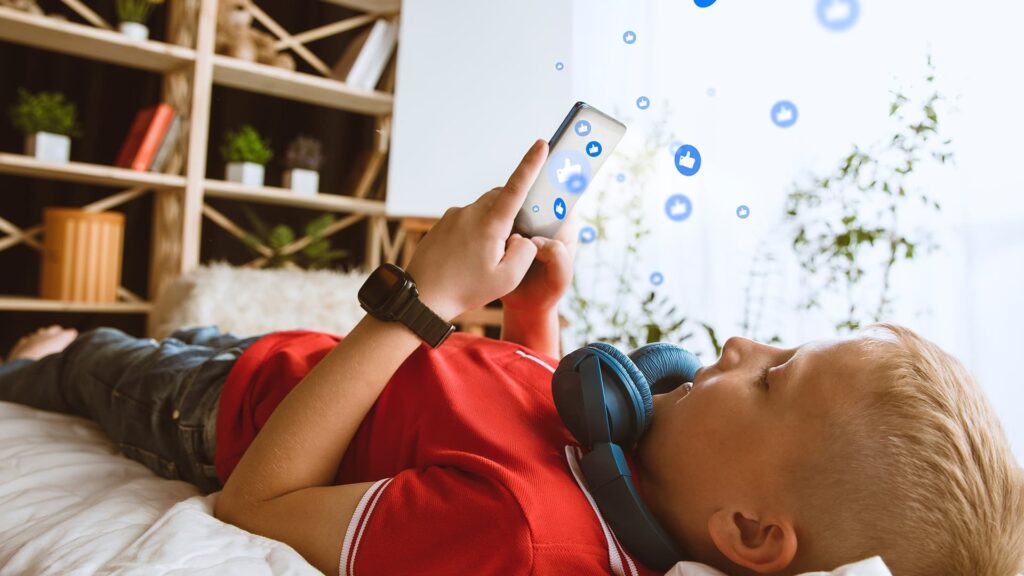
Plus, the continual comparison and FOMO from late-night posts! It’s not exactly relaxing! Screen Time Before Bed is a minor issue that can have a big impact on your mood and sleep over time. Therefore, it is meaningful to pay attention to.
Nonetheless, Instagram, TikTok, Twitter, Snapchat, and other social media platforms have become a part of everyday life. While many people view scrolling through their feeds before bed as a way to unwind and stay connected, this seemingly harmless activity can have unplanned consequences, such as disrupted sleep patterns and declining health.
Just see everyone around is on the phone all the time doomscrolling and don’t forget excess of everything is dangerous so how come too much social media involvement is not? As sleep deprivation becomes more common among young adults and teenagers, it is crucial to understand the effects of late-night social media scrolling to promote healthier habits.
The Sleep Physiology and the Interference of Social Media Scrolling
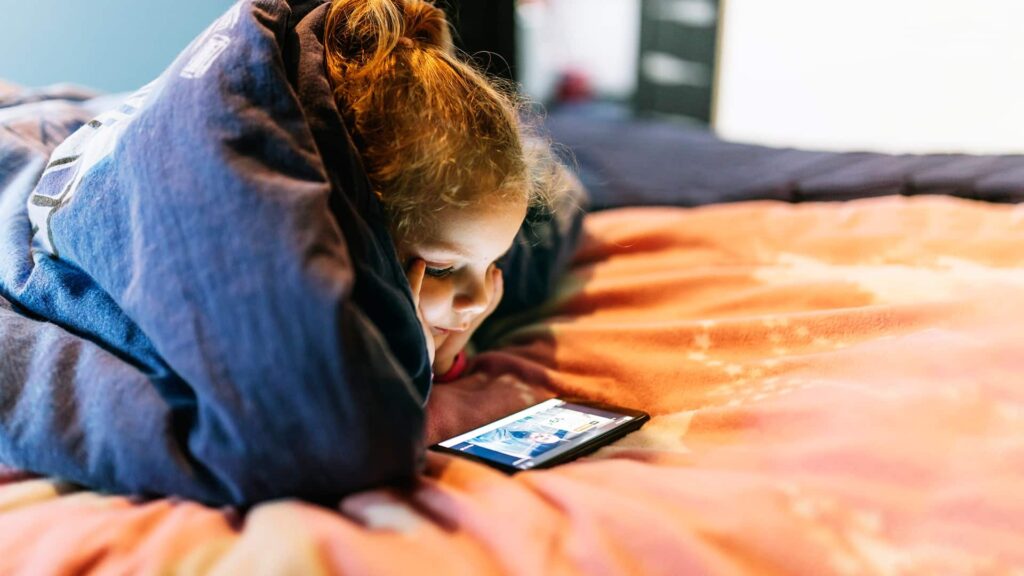
1. The role of Blue Light
Blue light from electronics prevents the synthesis of melatonin, a hormone that controls sleep. The duration and quality of sleep can be decreased by late-night exposure to blue light from displays, which can delay the commencement of sleep.
2. Stimulation of the Mind
Reading news articles, viewing videos, or responding to messages on social media all keep the brain engaged. It is more difficult to enter the peaceful state required for sleep because of this increased cognitive activity.
3. Emotional Triggers
Social media often evokes strong emotional responses, such as excitement, anxiety, or bitterness. For instance, reading controversial posts or comparing one to others while scrolling can lead to stress and overthinking, further disrupting the ability to fall asleep.
Patterns of Behavior in the Present Generation
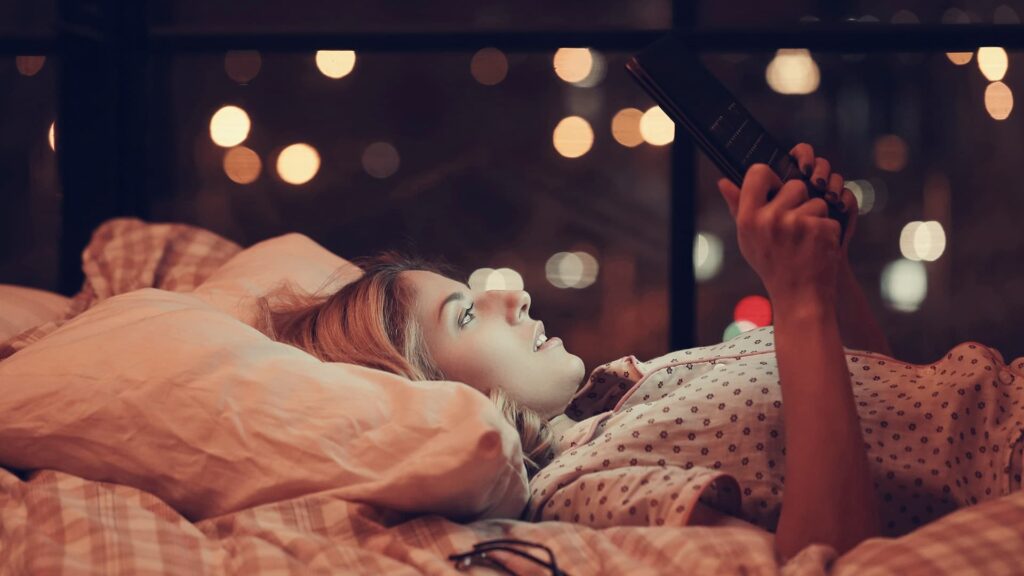
1. FOMO or the fear of missing out
People are compelled by FOMO to check their social media accounts frequently, even at odd hours like Screen Time before Bed. The urge for sleep is predominated by a compulsive cycle brought on by the fear of being excluded or missing crucial updates.
2. Infinite Scrolling
With endless scrolling options that make it hard to stop, social media sites are made to be addicting. This frequently results in extended use well into the night, depriving people of important sleep time.
3. Nighttime Routine
Checking social media has become a nightly routine for many people. People use their phones to wind down instead of engaging in relaxing activities, which frequently results in overstimulation and a delayed onset of sleep.
Consequences of Sleep Interruptions
- Effects on Physical Health
Immune System Weakness: Prolonged sleep deprivation weakens the immune system, increasing a person’s vulnerability to disease.
Weight Gain: Insufficient sleep can alter hormones that control hunger, which can result in a rise in appetite and weight gain.
- Mental Health Effects
Increased tension and Anxiety: Poor sleep worsens tension and anxiety, producing a vicious cycle of mental unrest.
Reduced Productivity and Focus: Lack of sleep affects cognitive function, which has an impact on performance in both the workplace and in school.
- Emotional and Social Effects
Irritability: Getting too little sleep can cause mood swings and irritability, which can impact communications and relationships.
Reduced Self-Esteem: Regular exposure to carefully chosen social media content can lead to unfavorable self-comparisons, which in turn can reduce self-esteem.
Strategies for Healthier Sleep Patterns
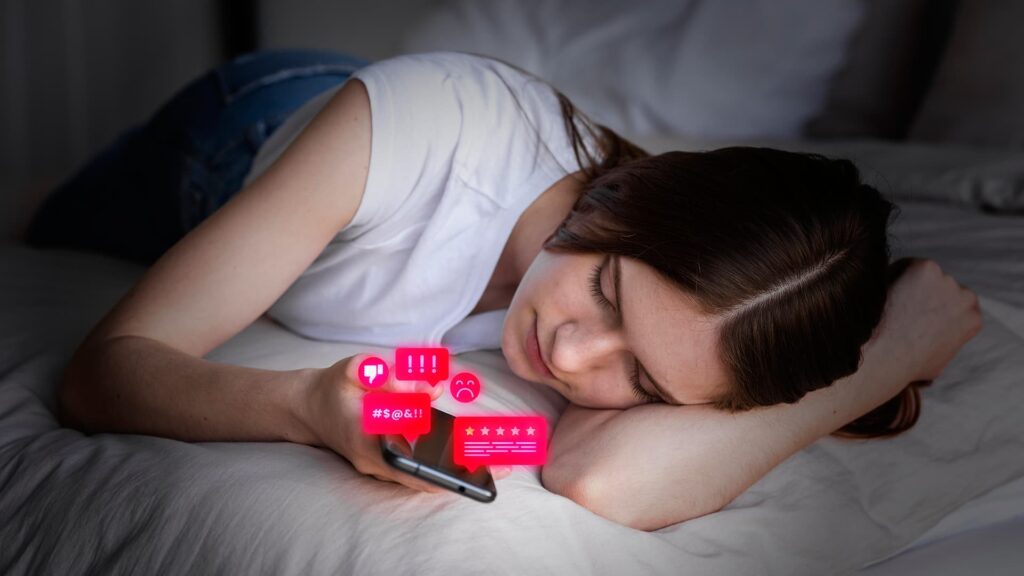
- Setting Boundaries
Establish a “no screens” rule at least one hour before bedtime. Use apps or device settings to limit social media usage during nighttime hours.
- Creating a Sleep-Conducive Environment
Replace screen time with relaxing activities, such as reading a book or meditating. Ensure a dark, quiet, and comfortable bedroom to promote restful sleep.
- Digital Detox
Schedule regular social media detoxes to break the habit of compulsive scrolling. Use this time to engage in offline hobbies or connect with friends and family in person.
- Educating the Present Generation
Raise awareness about the harmful effects of late-night social media use. Promote the benefits of good sleep hygiene through school programs and community initiatives.
Nonetheless, Late-night social media scrolling impacts people’s wellbeing. While social media has its benefits, excess, especially at night, leads to physical, mental, and emotional consequences. By understanding the science behind sleep disruption and adopting healthier habits, individuals can improve their overall well-being. The road to better sleep starts with small, mindful changes and a commitment to prioritizing rest over screen time.


